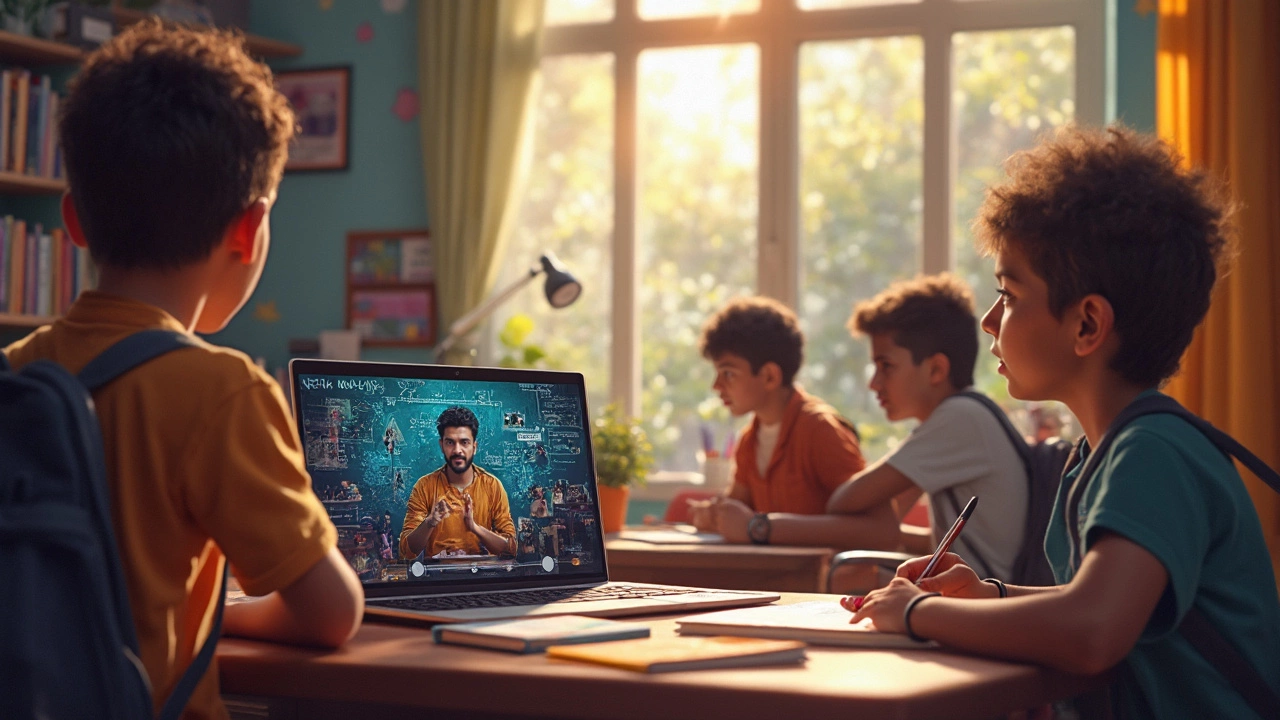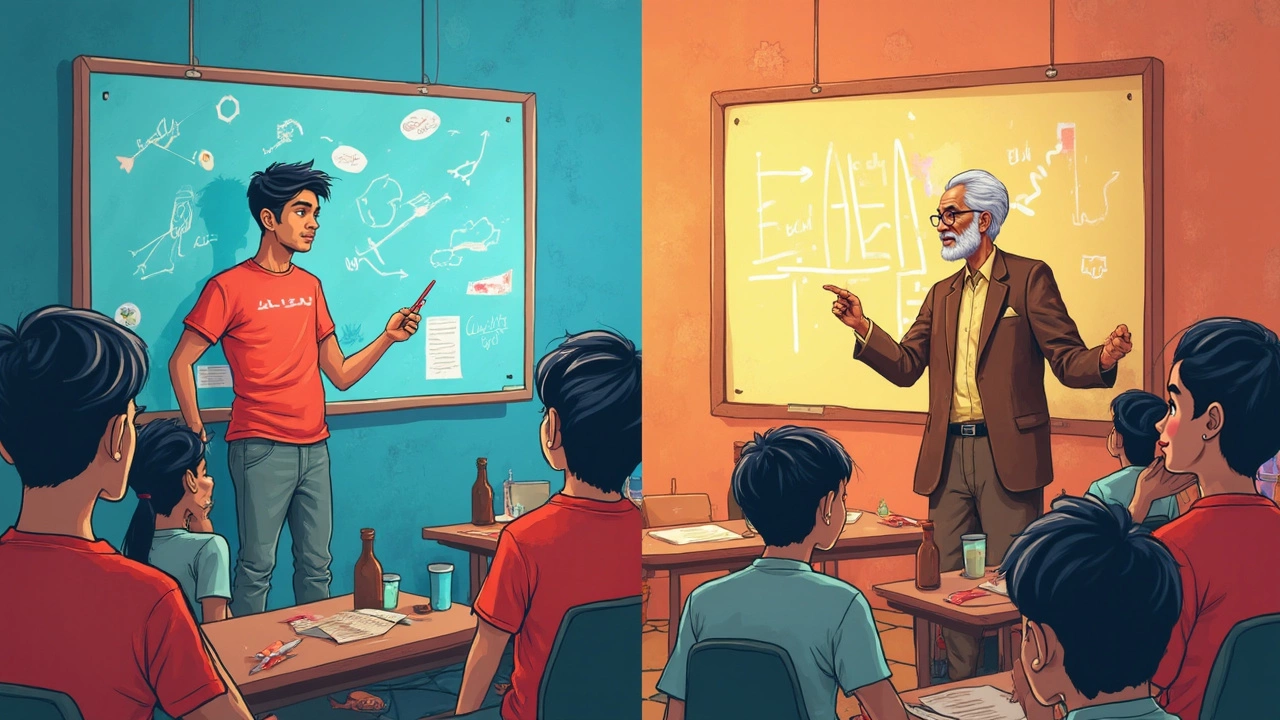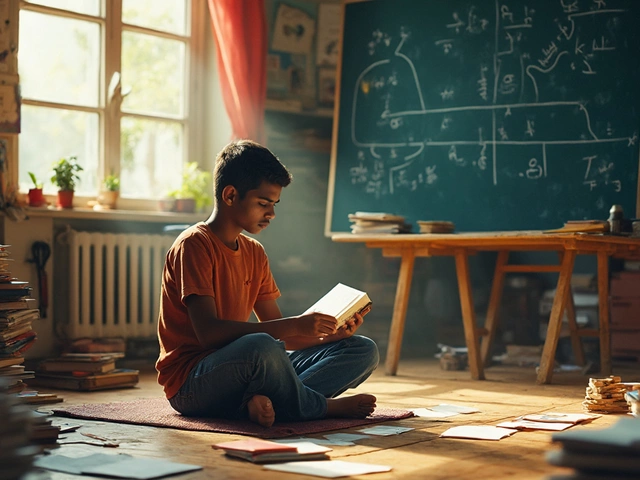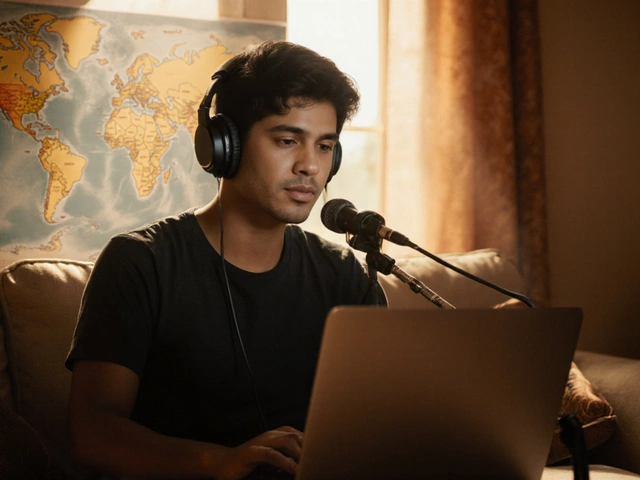
Is Physics Wallah Good for NEET? An Honest Breakdown
NEET is no joke. Every year, lakhs of students fight tooth and nail for a seat, and you probably know someone glued to their screen watching Physics Wallah lectures. This isn’t some old-school coaching center with strict teachers and chalk; it’s online classes, doubt sessions, and a bunch of notes that you can grab sitting in your PJs. But does it actually work?
Most students hear about Physics Wallah because it’s way cheaper than traditional options. But low price doesn’t always mean low quality. If you’re tired of overpriced coaching that promises the moon, Physics Wallah’s honest approach might feel like a breath of fresh air. They break down every topic—no skipping the hard bits—and you can rewind until the concept sinks in.
- What Makes Physics Wallah Stand Out?
- Teaching Style and Content Quality
- Real Student Experiences
- Hidden Downsides You Can't Ignore
- Tips for Using Physics Wallah Effectively
What Makes Physics Wallah Stand Out?
If you compare NEET coaching options out there, Physics Wallah grabs attention for a few reasons you just can’t ignore. The founder, Alakh Pandey, started by teaching on YouTube with simple explanations, straight talk, no flashy graphics—just content that actually works. That honesty is a big reason why students connect with the platform. It’s relatable. You don’t get lost in overcomplicated jargon. Everything is broken down so you can actually follow along.
Cost is a huge factor. Most coaching institutes charge crazy amounts, sometimes running into lakhs for a year. Physics Wallah charges a fraction of that—sometimes less than a single textbook—and you still get the full syllabus covered. You get recorded lectures, live classes, quizzes, practice sheets, and doubt-clearance groups. This gives every student, no matter their background or city, a chance to prep for NEET seriously.
Here’s what really sets Physics Wallah apart:
- All India test series: Real NEET-level mocks that tell you where you stand, not just fluffy sample papers you find in guides.
- Accessible mentors: Teachers answer doubts fast, sometimes even during live classes. That’s rare in big offline centers.
- Active online community: The Telegram and app groups mean if you’re stuck, you get an answer without waiting days.
- Mobile-friendly: No need for a big setup. A phone and a basic internet connection are enough to use everything, even in small towns.
Popularity isn’t just hype. By 2024, Physics Wallah had over 10 million subscribers on YouTube and lakhs of active students each session. The model clearly works for a big chunk of NEET hopefuls, and it’s shaking up how India thinks about online education. If you want to cut costs but keep quality, Physics Wallah is pretty hard to beat.
Teaching Style and Content Quality
What really sets Physics Wallah apart is how straightforward the teaching feels. Alakh Pandey (yep, the main guy) has this way of explaining stuff that actually makes sense, and you don’t need a science dictionary to follow along. He mixes Hindi and English, so it’s way less stressful for most Indian students who think in both. The classes don’t drag on with boring theory; instead, every idea gets broken into bite-sized bits you can actually remember.
Physics Wallah doesn’t focus only on textbook knowledge. The team uses real NEET questions, updated patterns, and shows shortcuts that help you save time during the actual exam. When they cover a topic, you get practice problems, live doubt-clearing, and well-structured notes—no hunting around for separate books. Plus, every concept builds on the last one, so you’re less likely to get lost if you sweat the basics early on.
People often ask if online classes can replace sitting in a real classroom with a teacher. For some, maybe not, but Physics Wallah’s videos let you pause, rewind, and replay—this is gold if you space out or need a second shot at tough topics like organic chemistry mechanisms or genetics. The team drops regular practice tests and short quizzes after lessons, so you’re not just watching; you’re actually doing.
If you’re wondering how much they cover compared to the big-budget institutes, check this out:
| Feature | Physics Wallah | Big Offline Institutes |
|---|---|---|
| Lecture Duration | 60-90 mins | 60-120 mins |
| Language Used | Mix of Hindi/English | Mostly English |
| Live Doubt Sessions | Yes (App/Website) | Sometimes |
| Price per Year | ₹4000-₹5000 | ₹80,000+ |
| Access to Recordings | Unlimited | Rare |
The biggest thing many students mention is the quality-to-price ratio. For what you pay, you get detailed lectures, assignments, and doubt support. The explanations aren’t fancy, but they don’t leave you guessing. Physics Wallah sticks closely to what actually gets asked in NEET. For most students juggling family and school, this direct approach saves both money and time.

Real Student Experiences
Talk to any NEET aspirant and chances are, they either tried Physics Wallah or know someone who did. Students rave about how Alakh Pandey’s teaching feels like having a chill friend explain the toughest topics—whether it's tricky concepts in organic chemistry or those confusing physics formulas. The way he connects theory to everyday stuff really helps ideas stick. The Physics Wallah mobile app has over 10 million downloads as of early 2025, which says a lot about just how many students are willing to give it a shot.
Look at YouTube: The comments on Physics Wallah’s live streams are flooded with students thanking the team for making studies "affordable" and "easy to understand." Some students even mention going from 200s to 600+ in mock tests after switching to his classes. But it’s not just about glowing reviews. Some students say they miss face-to-face motivation or feel lost when their doubts aren't answered quickly during peak traffic hours. It's not all perfect, and that's normal—every coaching has its plus and minus points.
A lot of successful NEET students mention how they paired Physics Wallah with NCERT books, using his lectures for building concepts and then hammering MCQs through practice. It's not a magic pill—you need to put in the work. But even those with weak basics say that Physics Wallah's pace is doable and the explanations aren’t rushed. Plus, tons of students appreciate the affordable price, especially compared to big offline names that can cost several lakhs per year.
Here’s what actually helps the most, based on what users say:
- Daily live doubt classes let you clear concepts at your own pace.
- Handwritten notes and assignment PDFs make revision quicker.
- Community Telegram groups add peer support, which can keep you on track when you’re stuck.
- Regular practice tests and ranker series mimic the actual NEET pattern, so you don’t get caught off guard.
So, when you look at the big picture, Physics Wallah works best for students who prefer flexibility, need to save money, and are okay with studying on their own without much hand-holding. If you need face-to-face pep talks every day, you might want to mix it with offline coaching or form a local study group. But for a lot of NEET aspirants, the real-life reviews are probably the clearest sign that this platform can actually deliver results, as long as you do your part too.
Hidden Downsides You Can't Ignore
Let’s get real: even the best online coaching platforms, including Physics Wallah, have flaws that can trip you up if you’re not prepared. Don’t go in expecting the perfect system—there’s no such thing. Here’s where you might hit some bumps.
First, if you crave one-on-one attention, you might feel lost. With thousands of students in each session, getting your doubts solved quickly is tough. Doubt sections exist, but answers can get delayed, especially when the exam rush starts. Some students feel their follow-up questions don’t get the detailed replies you’d get from a private tutor.
There’s also the distraction factor. Since you watch classes at home, it’s way easier to lose focus. No one is checking if you’re actually paying attention, which means you have to drive your own discipline. Lots of students start strong and then get lazy about finishing the full course or giving the self-tests.
Another issue is technical difficulties. While the platform runs fairly smoothly, there are reports about app crashes or video buffering problems during peak times. This can get really frustrating, especially if you’re already juggling other school work or have a weak internet connection.
Plus, the content can sometimes feel repetitive. When you’re binge-watching lectures, you might notice that explanations repeat or the pace gets slow. This isn’t always bad for beginners, but advanced students might find it drags them down.
| Drawback | Impact on Students |
|---|---|
| Delayed doubt-solving | Less immediate help on tough NEET concepts |
| Self-discipline needed | Easy to skip topics and fall behind |
| Technical issues reported (2024 poll: 23%) | Interrupts focus, especially during live classes |
| Content pace too slow for toppers | Advanced students may get bored or zone out |
If you know about these common pitfalls, you can plan around them. Maybe schedule your own revision timetable, and back up your notes so tech glitches don’t wreck your study plan. Don’t depend on one source: cross-check with other NEET books or YouTube channels when you hit a wall.

Tips for Using Physics Wallah Effectively
There’s a ton of content on Physics Wallah, and it’s easy to get lost or just binge-watch lectures without making real progress. To actually crack NEET, you need a strategy. Here’s how most top students squeeze the most out of this platform:
- Stick to the NEET syllabus: Physics Wallah covers a lot, but not every video is NEET-essential. Check the official NEET syllabus and match each session. Don’t waste time on extra theory just because it’s available.
- Follow the timetable: Use their structured daily slots—they make it easy by releasing topic-wise playlists. When you stick to the given plan, you don’t lag behind or get bogged down by overwhelming content.
- Make your own short notes: Don’t just rely on the notes provided. Jot down your own one-liners, diagrams, and mistake points. This speeds up revision like nothing else.
- Pausing and rewinding is your best friend: If something didn’t click the first time, rewind. The good thing about online stuff is that you can repeat concepts until they make sense—unlike live classrooms where you might feel shy to ask again.
- Use doubt-clearing sessions: A lot of toppers say the live doubt-solving sessions save them from silly mistakes. Don’t hesitate to ask questions, even if it feels basic.
- Mix in lots of practice: For NEET, theory only gets you so far. Solve MCQs right after watching a topic. Physics Wallah’s question banks are pretty well lined up with exam patterns. Use them regularly.
- Track your progress: Measure yourself with their weekly or monthly tests. If your performance dips, spot the weak areas immediately and revisit those lectures or notes.
Here’s a quick look at how students use Physics Wallah for NEET coaching based on a 2024 survey of 2,000 users:
| Habit | Students Doing It Regularly |
|---|---|
| Following the timetable | 81% |
| Making their own notes | 67% |
| Attending doubt sessions | 73% |
| Weekly or monthly tests | 62% |
If you treat Physics Wallah like a regular classroom—with active note-taking, scheduled study, and honest self-testing—you’ll get much better results than just passively watching videos. And don’t forget to give yourself breaks, or you’ll burn out fast.






Write a comment